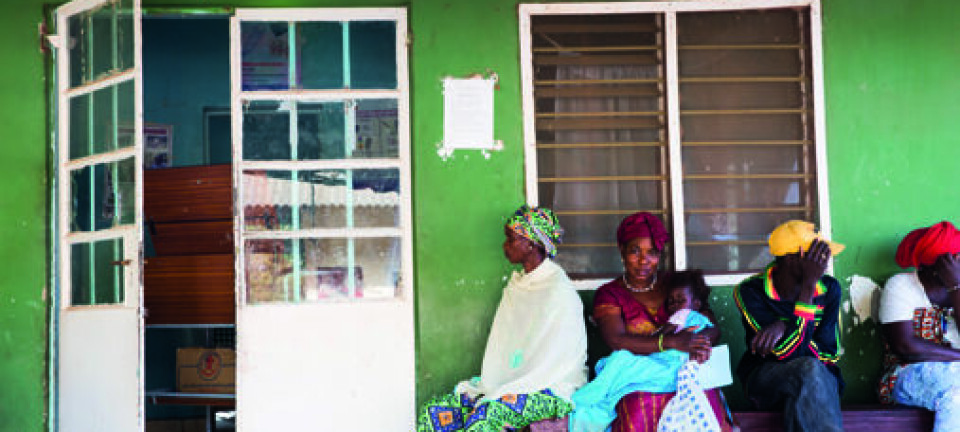
Biology makes women and girls survivors
Women outlive men even in the face of discrimination and crisis situations, such as famine.
Women outlive men in nearly all countries around the world today. Plenty of research backs this up and can explain many of the factors behind it, such as behavioural and biological differences between the two sexes.
For example, men tend to consume tobacco, alcohol, and psychoactive substance in greater quantities than women.
Men are also generally more reckless than women: They drive less safely, eat less salubriously, and go to the doctor less often.
However, biology also plays a crucial role, as demonstrated by the fact that women have longer life expectancy even in groups where men and women have similar and healthier lifestyles, such as cloistered monks and nuns.
But how does this change under crisis conditions? Do women still hold a survival advantage in times of war, famine, epidemics, or other crisis situations?
There just wasn’t enough evidence in the scientific literature to know for sure, so we designed a study to find out by looking back in time to crises throughout history.
Read More: Women have healthier lifestyles, but are sicker
Do women have a survival advantage in times of crisis?
We analysed seven historical cases with well documented and reliable data, which included a population of plantation slaves in Trinidad in the early 19th century and the Swedish famine between 1772 and 1773.
We studied the male-female survival differences among populations exposed to severe mortality conditions and saw that women survived better than men in all populations. Not only was their life expectancy longer, but they also had lower mortality across almost all ages.
Moreover, infant girls had much higher survival rates than infant boys, indicating that new-born girls were more likely to survive extreme mortality conditions.
Women are biological survivors
Infant boys and girls don’t differ significantly in terms of behaviour, but their parents can. If they have different attitudes towards their children depending on their sex, this can affect the child’s survival.
Any discrimination in the historical populations that we studied, was likely to have been against girls and in favour of boys, as shown by historical and anthropological evidence on pre-industrial societies.
So the fact that women survived more than men, even in infancy when behavioural differences are minimal and despite potential discrimination against them, lends support to a biological underpinning of a female survival advantage.
Read More: Major gender gap in health research
Genetics could explain the advantage
Previous research shows that the biological advantage of women might lay in hormonal and genetic differences.
Oestrogens have been found to enhance the immune system and to protect against a broad set of diseases. While testosterone seems to increase the mortality risk and has immunosuppressive effects—that is it suppresses the immune system response.
Moreover, our genetic make-up could also be advantageous towards women. Women have a double X-chromosome (XX), which in effect gives them extra genetic material, a backup if you like, that compensates (at least partly) for bad mutations. If there is a bad mutation on one X chromosome, then she has another X chromosome, which might not have that bad gene.
Men on the other hand, have one X chromosome and one Y chromosome (XY), so there is no “backup.” A bad mutation on one X cannot be compensated by the second X, as it doesn’t exist.
Read More: Young jobless males might expect poorer health in adulthood
Human influence can reverse the trend
Interestingly, in our study, the slaves of Trinidad represented the exception to the rule. Here, women, even though they still had higher life expectancy than men, also suffered from higher mortality than men in childhood and at young adult ages.
This was most likely due to some premium placed on the survival of young male slaves, who, as shown by historical records, had higher monetary value than female slaves.
It highlights an important distinction: In populations that are exposed to harsh famines and epidemics the female survival advantage holds at all ages. But where human control dominates, such as the slave populations of Trinidad, men can have lower mortality than women, at least across some ages.
Women outlive men even in times of crisis
Our results show that women are more likely to outlive men, even in situations or countries where mortality was extremely high due to a condition of slavery or events such as famines and epidemics.
The hypothesis that the survival advantage of women has fundamental biological underpinnings is supported by the fact that even under these very harsh conditions, women survive better than men, and this starts at a very young age.
The next steps in our future research aim to find other small pieces of this complex puzzle, for example by looking at the role old age plays in the overall gender gap in survival, which increasingly shapes our society.
---------------
Read this article in Danish at ForskerZonen, part of Videnskab.dk











